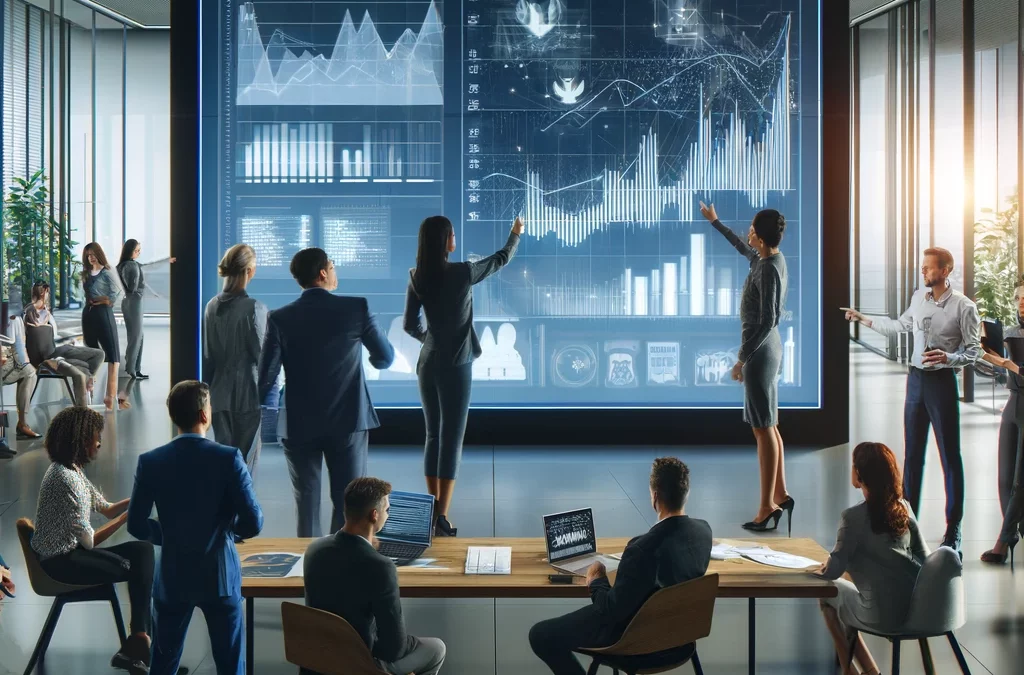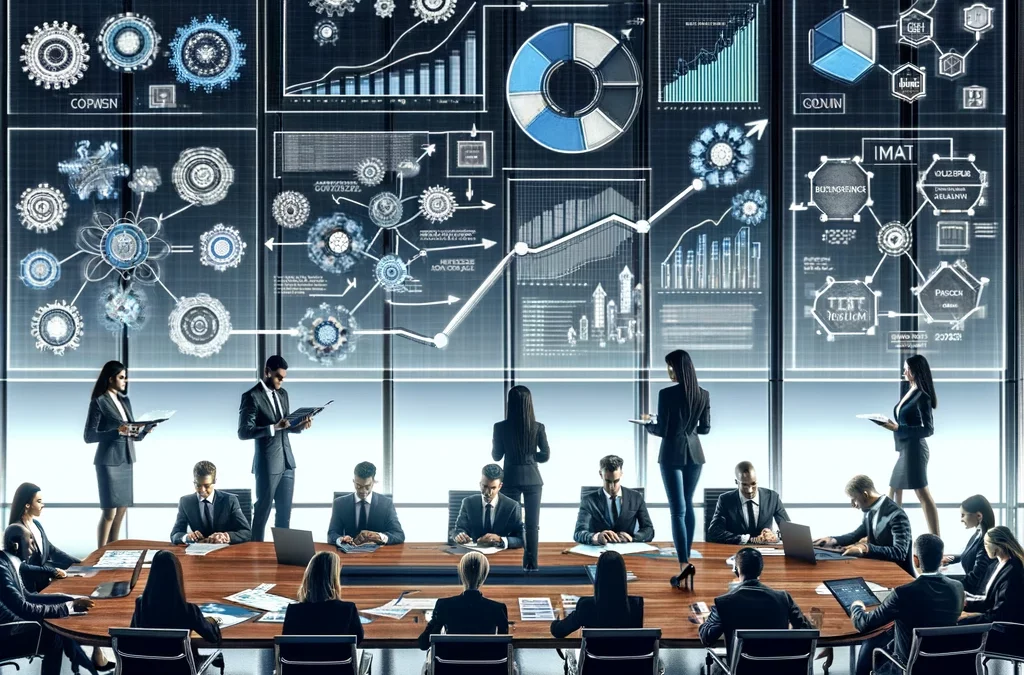Adapting your workplace for today 
Have you thought about the impact on capability training and development in your organisation whilst Covid-19 pushes UK Plc back on its heels? Perhaps you’ve decided to halt training and development until the crisis is over? Well, maybe you’d like to revisit that if you have because we should remember that there is no finite end date to downturns, virus related or not.
There is never a day when the war is declared over, downturns just disappear. And like the other downturns, this one will be a slow burn to the finish which means society will come back online slowly, metaphorically speaking. We should be preparing now for a ramp up in customer and client interest rather than waiting to reboot on the day we think the downturn is over because that will be too late. To prepare now, or not, is the tension between having a mindset of open and infinite growth versus a closed or finite one.
A very good book describing this conflict between an infinite and finite mindset is Simon Sinek’s ‘The Infinite Game’. We have a review of it here https://www.mastersinminds.com/book-review-the-infinite-game-simon-sinek/
Downturns are a time of infinite opportunity not finite certainty
In every downturn for the last 60 years the first two areas to be curtailed are marketing and training. I think that this is bizarre because if you applied some critical thinking around what might be the two most important areas to an infinitely minded business when things are bad, it’s those two. This is because, firstly, all of your competitors will cut back their marketing budget, they don’t know why specifically it’s just something they’ve always done because the belief has been that no one has any money in a downturn, but I’m not sure that’s as true in the ‘easy credit’ 21st Century.
They’ll stop actively promoting through the conventional media outlets in one form or another and in doing so retreat from customers’ thinking – so why would you also join them in reducing your presence? If anything, you should increase it and take over the spaces left vacant with your message so that when the economy starts to right itself customers will have your name in their thoughts.
The second victim of spend reduction is training. Now here’s a quick question; which business strategy book does it tell you that in times of stress you should reduce the very thing that’s going to keep you at the front of the field in terms of capability? No book says to do this. So, just like with marketing, when downturns strike this is the very time to swim counter to the ‘accepted direction’ and speed up training and development so that when the economic upswing arrives you not only lead the market but you may even find yourself being the one to define it. Above all else, it would be a shame right now to halt a training programme mid-stride and risk losing all the benefits gained, not to mention the financial investment that you would undoubtedly have to write-off.
So, rather than hunker down and wait indefinitely for the storm to pass and as enticing as that might feel right now, as a leader you’ll need to find a way to continue the enabling and empowering benefits from training and developing your staff.
“Leadership & Learning are indispensable to one another”. – John F Kennedy
FIVE SMALL STEPS, ONE GIANT LEAP
There are five steps you can begin to action right now to protect and develop yourself and your people, through maintaining and expanding the momentum and benefits of your workplace learning and development.
Create (and lead) a learning response team.
Are you taking notes right now about how your business is responding to the crisis? This team should be asking, what worked, what didn’t, what works now, what is still broken, what could be done quicker next time? (Yep, unfortunately there will be a next time of some sort).
Consider how you train and prepare staff going forward – for example, do your induction and on-boarding programmes need to be done in person in the physical workplace? Maybe not.
You may already have a learning and development team in place. If you do, they should have a comprehensive picture of organisational wide learning and be currently adapting them to this new business environment. If you don’t have the luxury of an L&D squad, consider outsourcing, bringing in a partner to support you as now would be a really good time to take the lead on some Skills & Capability Gap Analysis and begin to build a programme of learning to plug those gaps.
Take advantage of the fact that people are working from home. With the help of all relevant stakeholders in the organisation from HR through to IT and everyone in between, see what is available online or in-house that could be delivered online.
In our present world right now, this is the best time to undertake an audit of your current learning offerings and set priorities to those that can be adapted to digital. This is good practice anyway because the most resilient organisations ‘review and renew’ as a core part of their L&D.
Setting metrics against each piece of learning is critical to make the correct decisions. What this means is that through your audit you should be able to gauge;
How effective your training is as it stands right now, and where does it need to be?
How critical to the organisation is it.
How soon does the training have an effect.
How adaptable to digital is it.
As an example, in the present climate of physical distancing, digitising your Onboarding & Induction is the very first place to start. From here your team should look at the Remote Working skill levels of your employees (can they use Teams, Zoom, Skype etc), do they know how to share screens, what are their presenting skills like, and from here you then move into management skills training to aid your managers in Remotely Managing Teams.
You should at this point set regular meetings to give the process a tempo, or cadence, and to align it with the speed of the wider organisation’s response to the disruption.
Protect your staff
Protecting employees in this new approach is vital, don’t assume that everyone is digital or computer literate. You will have to make sure that everyone learning remotely is familiar with your organisation’s digital learning platforms, for example, is this something you’ll move into Employee on-boarding (see above)? Sharing and working on documents in the cloud and hosting video conferences are just two of the new remote working skills that are going to be so important in the future. You have to protect your staff from any negative affects of not being able to use these tools.
Just as important to knowing how to use your chosen technology platform, the most effective workshops begin with good participant experience, protect your staff by making sure that processes are in place to make sure the technology has been tested, local dial in numbers are known as required, roles assigned, and pre-reading material has been distributed well in advance.
Promote digital learning
Consistently and constantly promote and improve the digital learning experience. Remote virtual learning brings obvious environmental benefits and cost savings, it’s good for us, good for the environment, and good for the bottom line.
There is something of a new community spirit evolving as people move through the change curve and start aligning themselves to remote virtual learning. This is because working independently from one another is starting to drive a more focussed purpose across a larger team of people rather than a purpose being only naturally strong in a smaller office-based team.
Digital learning is also benefiting right now those organisations that have teams stretching across different time zones. The majority of global firms have had to get good at remote virtual working and learning over the years – if they can, you can, we all can.
Explore alternative digital strategies
For employees suddenly finding themselves using digital learning as a new way of increasing their capability it’s easy to stay with one platform despite the fact that it may have weaknesses. You shouldn’t be afraid to try out and explore alternative learning strategies.
Operating with several digital learning platforms can help to increase learning. To do this, re-frame the remote learning problem as a design opportunity and re-think the recipient’s end-to-end experience. Set priorities for the essential learning objectives and then focus solely on the content that will meet them.
Design shorter interactions with more time between sessions to strengthen learning, such as embedding time. Aim to create human connections wherever possible by creating intentional meaningful interactions and finally, make it a seamless learning experience from the very first contact to the last and make sure that it is consistent for all participants.
Practice & Prepare for multiple outcomes
Finally, we have to recognise that there are limits, currently, to what can be addressed when using live virtual sessions and classrooms, these might not be the best ways for building interpersonal skills but then again a by-product of digital learning is that we’re talking about structuring new ‘remote inter-personal’ skills here and you could be right at the front of the queue when it comes to this, but it’s vital to remember that like all learning, online learning still needs to reinforce the link between business outcomes and longer-term capability building and that learning in any form shouldn’t be thought of as a one-off event. It should be thought of as a broader learning journey tied closely in to the business objectives.
So, if your 3 year roadmap has at the end of it a raft of outcomes that you don’t have capability for just now, start putting in place a programme of digital learning immediately so any economic interruptions do not impact on the 3 year roadmap as they are undoubtedly doing right now.
At Masters in Minds we are experts in delivering online learning and development programmes, along with facilitated problem resolutions that are specific and measurable with a tempo that aligns with your business outcomes. Our teams of experts can guide you and direct you through these difficult times but more importantly we can and we will prepare you and your business to be resilient for the future and any further significant interruptions.





































